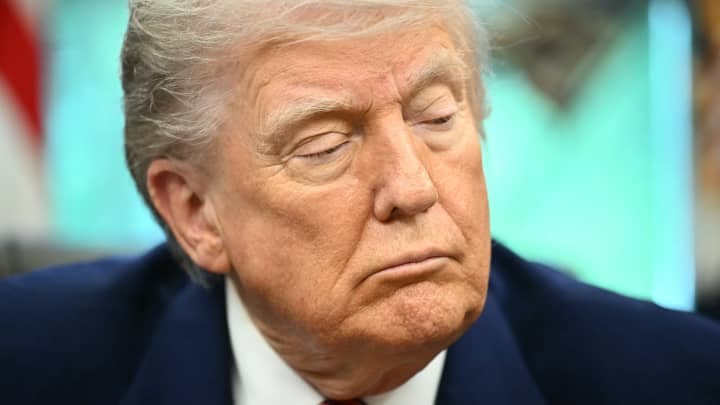Sheltering in a Bunker, Iran’s Supreme Leader Prepares for His Potential Death Amid War With Israel
As Israel continues its most intense military campaign against Iran since the 1980s, Iran’s supreme leader, Ayatollah Ali Khamenei, has retreated to a bunker and taken extraordinary precautions — including selecting his potential successors — in anticipation of a possible assassination.
According to three Iranian officials familiar with his emergency wartime planning, Ayatollah Khamenei has suspended all electronic communication and now relays orders primarily through a trusted aide. In addition to reorganizing the military chain of command in case his top generals are killed, the 86-year-old leader has named three senior clerics as possible successors, should he himself be slain.
The move, unprecedented in the Islamic Republic’s history, underscores the gravity of the situation as Tehran reels under near-daily Israeli strikes that have already outpaced the damage caused by Saddam Hussein during the Iran-Iraq War. Officials say the leadership’s top concerns now include Khamenei’s personal safety, the possibility of U.S. military involvement, and the risk of further damage to Iran’s vital infrastructure.
Leadership Under Siege
Since the start of Israel’s air campaign last week — the largest since the Iran-Iraq War — key Iranian military figures have been killed, critical infrastructure destroyed, and residential neighborhoods heavily bombed. Tehran has responded with daily missile attacks, striking targets inside Israel including a hospital, oil facilities, and religious sites.
Despite these setbacks, Iranian officials say the chain of command remains intact. Though speculation about succession has long been taboo, Khamenei has broken tradition by submitting three names to the Assembly of Experts — the body responsible for appointing a new supreme leader — and asked that his successor be chosen swiftly in the event of his death.
"This is not just about protecting himself," said Vali Nasr, a professor at Johns Hopkins University. "It’s a calculated move to ensure the regime survives and transitions smoothly."
A Shadow War at Home
Iranian intelligence has revealed what they describe as a “massive security and intelligence breach” that allowed Israeli agents to plan the strikes months in advance. According to a senior adviser to Iran’s Parliament, multiple top generals were assassinated within an hour in a coordinated attack, and Israeli collaborators may still be operating on Iranian soil.
This second front — fought not in the skies but through covert operations on the ground — has deeply unsettled Iran’s leadership. In response, the Ministry of Intelligence has ordered government officials to stop using electronic devices and remain underground. Citizens have been urged to report suspicious activity and refrain from filming or sharing images of attack sites.
Internet access across Iran has been heavily restricted, with international calls blocked. According to officials, this is a defensive measure to root out enemy operatives and prevent further attacks.
Escalation Risks and U.S. Involvement
Officials say Iran is bracing for the possibility that the United States could join the conflict. President Donald Trump is weighing intervention options, and some military experts believe only the U.S. possesses the firepower — including a 30,000-pound bunker-buster bomb — capable of destroying Iran’s underground nuclear facilities at Fordo.
Iran has warned it would retaliate by targeting American assets across the region, risking a broader and more devastating war.
Nationalism and Solidarity Amid Chaos
Despite the chaos, many Iranians — including those critical of the government — have rallied behind the nation in a surge of patriotism. Reformist politician Mohammad Ali Abtahi noted that internal divisions have softened in the face of external threat, uniting political factions and the public.
National soccer players, physicians, celebrities, and human rights activists have spoken out in support of Iran’s sovereignty. Nobel Peace Prize laureate Narges Mohammadi, long critical of the regime, also condemned the foreign military attacks, saying: “Democracy cannot come through violence and war.”
Throughout Tehran, signs of solidarity abound. Hotels and public buildings have opened their doors to shelter those fleeing bombed neighborhoods. Therapists are offering free online sessions, and bakeries are rationing bread to ensure everyone can eat. Social media posts have documented volunteers helping elderly and disabled residents.
“We are afraid, but we are united,” said Reza, a businessman who fled to the Caspian coast with his family. “This war is against Iran — all of us. We feel it deeply. And we are standing together.”
- Israel-Iran Conflict: Live Updates
- History of the Conflict: A Timeline
- Inside Tehran: Life Under Attack
Tags: Ali Khamenei, Iran, Donald Trump, Israel-Iran War





